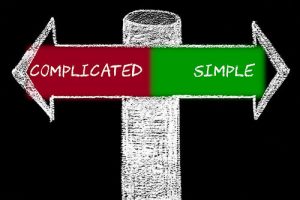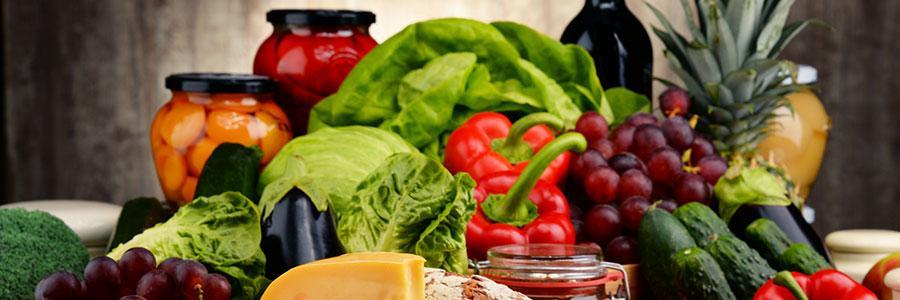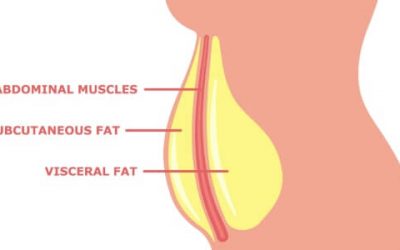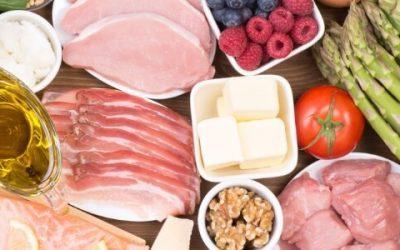Nutrition is big business. A multi-million (billion?) euro industry worldwide has sprung up over the last two decades, and while some of it it is certainly valid, there are an awful lot of people whose job it is to make something that is actually very simple sound very complicated. A very common complaint from people looking to get in better shape is that there is so much, confusing, complicated and contradictory information everywhere that they do not know who or what to believe. Generally speaking, if you are an average person (not a competitive athlete) who is just looking to get in better shape and lose a few kilos, you shouldn’t have to hear people yammering on to you about insulin sensitivity or your resting metabolic rate.

We have mentioned in previous blogs that the most important element of a successful weight-loss diet is simply consuming less energy than you ingest through food (known as a calorie deficit). This is undoubtedly the single biggest thing to worry about if you are trying to lose weight.
But there are other important points to remember… such as making sure you’re eating enough protein, making sure you’re not avoiding healthy fats, minimising your sugar intake and taking in an appropriate amount of complex carbohydrate for your individual activity levels (hint: do you sit at a desk all day? Then it’s not that much!). But there are concepts that can help us at an even more basic level.
First off: personally, I’ve always, always been of the opinion that it’s better to lose a little bodyfat slowly and actually have a good chance of keeping it off, than to drop loads of weight quickly only to put it back on again, and maybe more. At the risk of sounding clichéd, there is a huge emphasis nowadays put on short-term results (“I need to lose a stone for my cousin’s wedding next month”) rather than long-term sustainable health and it is a mindset that we need to overcome. Think Big Picture, Long Game.
Having spent many years in professional environments where recreational trainees (non-athletes who just want to get in better shape, feel better and look better) I almost never give clients specific diet sheets anymore. My experience has given me the confidence to actually move back to the basics again rather than over-complicate things the way you see so much nowadays. This is very similar to how I coach; stick to the fundamentals because they work (I try not to fall into the trap of giving out complicated advice just to show off how much I know…And if you, as a client or a potential client feel that someone is trying to “sell you’’ by using too many 5-syllable words in a conversation about a subject like healthy eating, maybe be a little wary).

So what I tend to encourage in anyone looking to see body composition improvement (I personally don’t tend to use the term “weight loss” much because it’s essentially meaningless) is to make broad improvements, a little at a time. If I were to say the two broad rules that I have seen make the biggest, most lasting changes to how much bodyfat someone carries, it would be A) Eat Real Food and B) Prepare Your Meals.
I could give someone (and I have) a detailed, personalised diet plan outlining each meal, the daily kCal targets, the macronutrient ratios and many other details, and they would absolutely see results in bodyweight and fat loss. But (and this is where my experience kicks in!) the odds are that it would be unsustainable. I have seen so many recreational trainees “do their time” on a restrictive diet only to almost immediately go back to their old ways and promptly put on any weight or bodyfat they lost.
What we want to encourage is long-term change, and that means gradually implementing lifestyle improvements that don’t have you thinking “only 6 more weeks of this and then I can go back to normal”.
So eating real food is the first change you can begin to implement. Look at your food and ask yourself “do I know what has happened to this since it was picked/farmed/caught/killed?” Has it been processed so as to make it unrecognisable? Think the difference between “chicken” nuggets and a chicken fillet from your butcher. It’s that simple. This one change, removing processed foods from your daily meals and simply eating real, single-ingredient food is the most effective improvement to their diet most people will ever need to make. Limiting yourself to real meats, fish, poultry, eggs, vegetables and fruit, it is actually surprisingly difficult to over-eat! Real food tends to be far, far less calorie dense than processed food, and it also tends to have far more nutirional benefit.
The second big rule is to start preparing your meals. This has two aspects: first, that by actually making your own meals as much as possible you are FAR more involved in what you eat. This might sound obvious, but you’d be surprised how much more thought you give your food when you’re putting it together yourself. And second, if you can actually spend a few minutes preparing your food in advance you will eat so much better, I promise you. Invest in some tupperware and you will never look back. A side benefit is how much money you will save if you are the sort of person who buys meals out and about a lot (I have heard people say that it’s too expensive to eat real food and I’m sorry, but that’s rubbish. Made in advance, a proper nutritious meal will probably be cheaper that that chicken roll you get in Spar every lunchtime).
So, there you have it. Get more involved in the preparation of your own food, and try to just stick to real unprocessed foods (meat, fish, veg, fruit etc) and without feeling like you’re denying yourself anything, you’ll have made the best, most sustainable and most effective long-term nutritional improvements most people will ever need to worry about. Simple rules like that don’t sell books but they do work.



